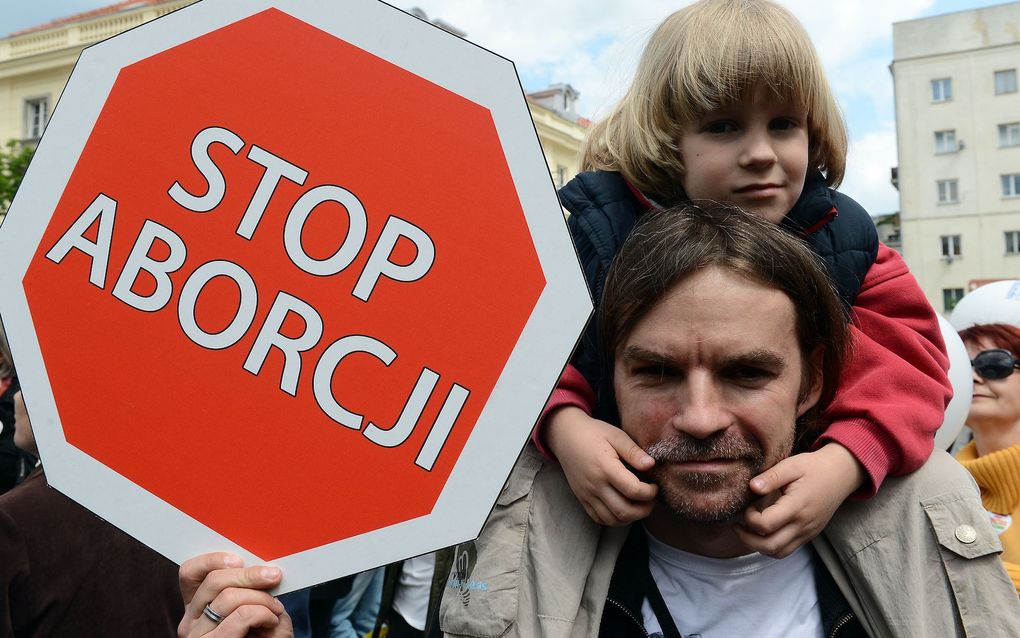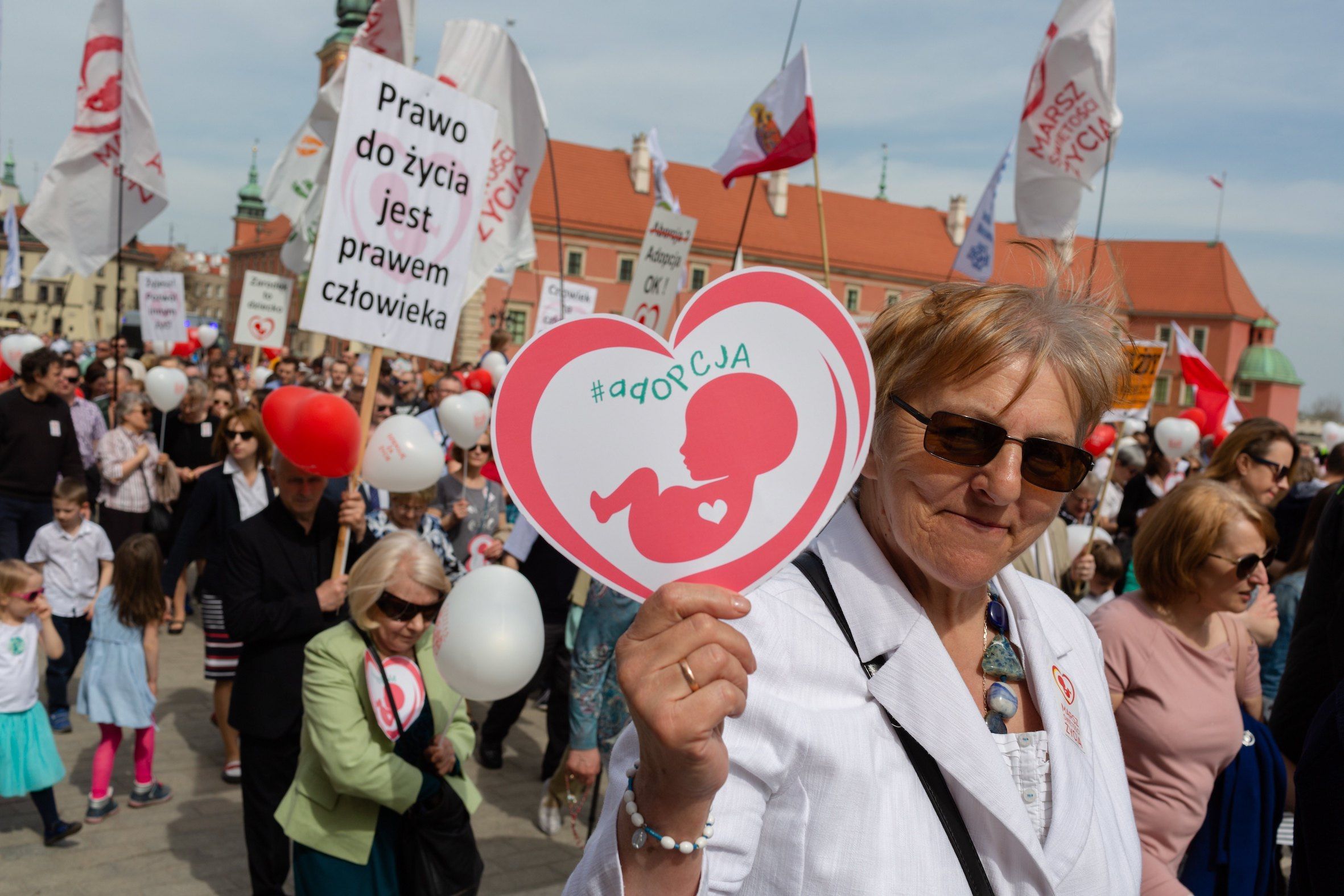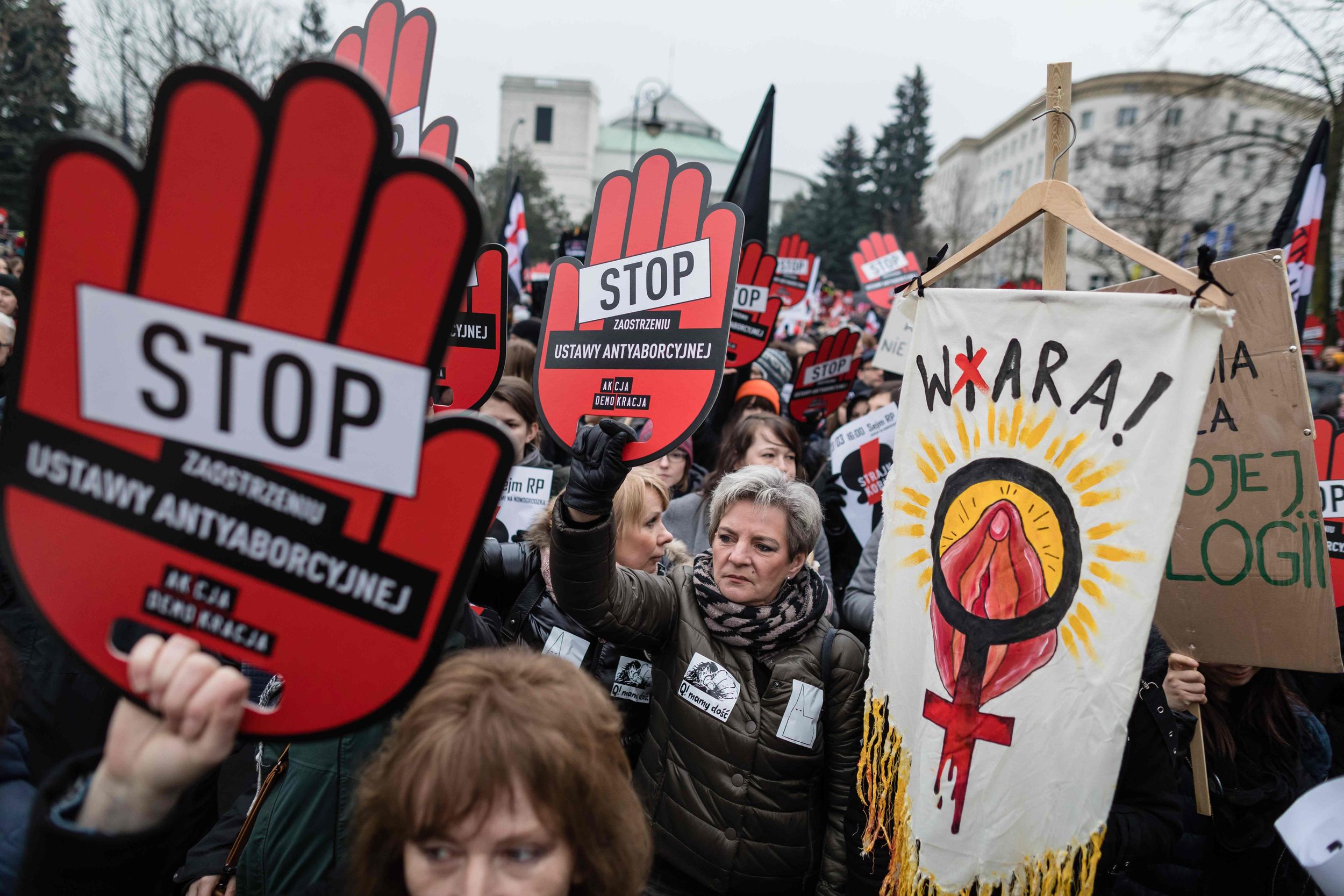New abortion law makes Poland an outsider in the EU
Poland’s abortion law has been tightened in January 2021. That brings anger and uncertainty in the country. Crowds of people took to the streets to protest but without success. For the Roman Catholic Church, however, is the current situation a long-cherished wish come true.

The debate on abortion in Poland has been complex and tense for decades. The views of proponents and opponents differ widely. This is not much different from the situation in other European countries. Yet Poland is unique within the European Union because of a complicated cocktail of culture, communism, the Roman Catholic Church and rule of law.
The debate in most other EU countries is focused on the possible relaxation of the abortion law. But in the Central European country, the legislation was tightened on January 27th, 2021. Three months earlier, the Polish Supreme Court ruled that it is no longer allowed to terminate a pregnancy because of severe abnormalities of the child.
Abortion is now only possible in exceptional cases: when the woman's life is in danger or in case of rape or incest. In theory, this still provides opportunities to terminate a pregnancy in the country. However, in practice, the amendment of the law means that it has become virtually impossible to have an abortion. Before the law changed, most abortions were performed based on an argued severe abnormality of the child. That is currently no longer possible.
Abortion legalised in 1956
The tightened abortion law was a long-cherished wish for the Roman Catholic Church in Poland. The church disagreed when abortion was legalised without public debate in Communist Poland in 1956. Church leaders at the time, however, were unable to protest the new law effectively.

In the decades that followed, termination of pregnancy was mainly seen as an accessible form of contraception. There was a shortage of other contraceptives. The number of abortions per year during that period is estimated to be between 130,000 and 500,000.
Compromise after Communism
After the dissolution of the Soviet Union and the fall of communism around 1990, the discussion about abortion in Poland really started. The Roman Catholic Church played an important role in the country's transition from communism to democracy. It was a stable factor in an unstable time, and almost all Poles felt a bond with the church, at least because they were baptised or married there.
Despite of this, there was opposition to the Roman Catholic Church's intention to ban abortion legally. People were almost accustomed to having abortion as a form of contraception. In 1993, a compromise abortion law was passed. The termination of a pregnancy would be possible in three cases: a child’s severe abnormality, danger to the woman's life, or in case of rape or incest.
Debate has never been over
Researchers give several explanations as to why the church and the outspoken proponents of abortion reached a compromise. On the one hand, there was not enough unity and lack of experience to successfully lobby for abortion. On the other hand, there was a lack of time to fully oppose abortion since there were plenty of other tasks and issues in the country.
However, the compromise did not mean that all discussions on the sensitive topic were over from then on. Since 1993, several attempts have been made to ban, criminalise or completely legalise abortion. For example, the church threatened in 2003 that it would oppose becoming a member of the European Union. The bishops demanded that the Polish government would first make it clear to Brussels that amendments to the abortion law could not be discussed.
Court rules to protect life
In 2016, Catholic organisations asked to outlaw abortion unless the mother's life is in danger. That proposal was almost passed. The conservative Law and Justice Party (PiS) was in power and supported the initiative. However, after mass protests, the party decided that it does not agree with the proposal to tighten the abortion law.
Ultimately, the law was amended at the end of January 2021. Why now? The answer depends to whom you raise the question to. Is it politically motivated? No, says the current ruling party PiS. The independent Polish Supreme Court has determined this based on Article 38 of the Constitution: "The Republic of Poland shall ensure the legal protection of the life of every human being."
Advocates of abortion hope another party will change legislation after coming to power
Others say it was politically motivated. For example, the European Parliament says the Supreme Court ruling is "yet another example of the political takeover of the judiciary and the systematic collapse of the rule of law" in Poland. Still, others say tightening the abortion law is a way to keep the party's right-wing happy.
Relaxation might happen after the election
The timing of the new law was well thought out. The idea was that mass protests would not occur during the corona pandemic. Nothing turned out to be less true. "No one expected such protests," a senior member of the PiS party told Polish media.
Or were those mass protests actually the intention, critics wonder. Did the government just want people to get so outraged that everyone would quickly forget the government's missteps regarding the coronavirus?
Nevertheless, the limitation of the Polish abortion law is a fact. But for how long? There is some hope among abortion advocates that the law will be relaxed again if another party comes to power. During the next parliamentary elections in 2023, voters can penalise the PiS party for amending the law.

This does not take away from the fact that the party was the favourite in the last two elections. It proved successful to put the family at the centre of attention and addressing solutions to socio-economic problems in the country.
Doubt about legitimacy Supreme Court
The EU is a source of hope for advocates of abortion. Brussels almost exclusively reacted with dissatisfaction to the new abortion law. Although abortion is a national competence for member states, discussions about the Polish rule of law and legitimately amending the constitution are far from over. It is difficult to effectively criticise what the Supreme Court has decided. However, much can be said about the legitimacy of the Supreme Court, due to violations of the rule of law in the country.
This article was published previously in the Dutch Reformatorisch Dagblad on June 19th, 2021